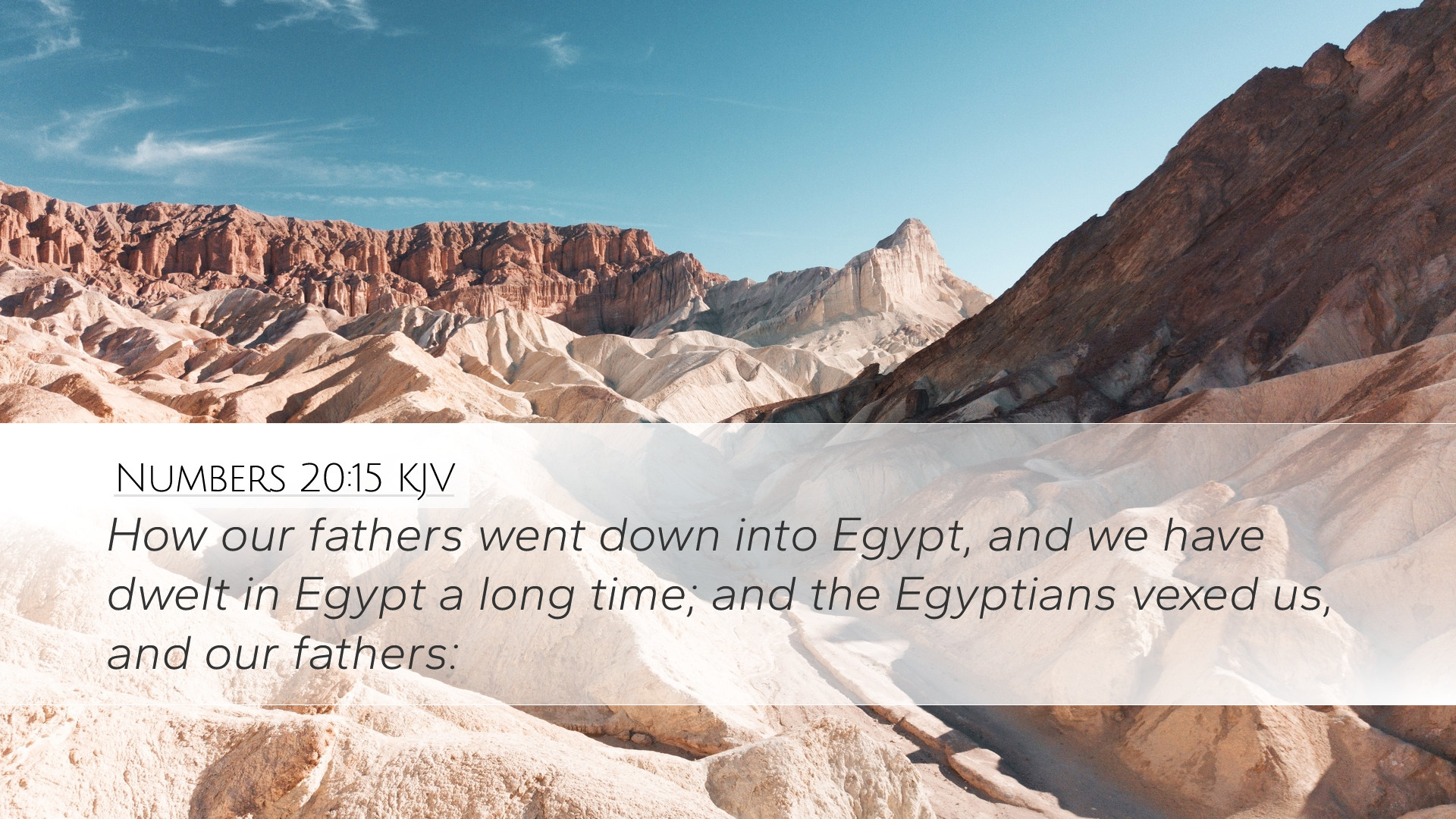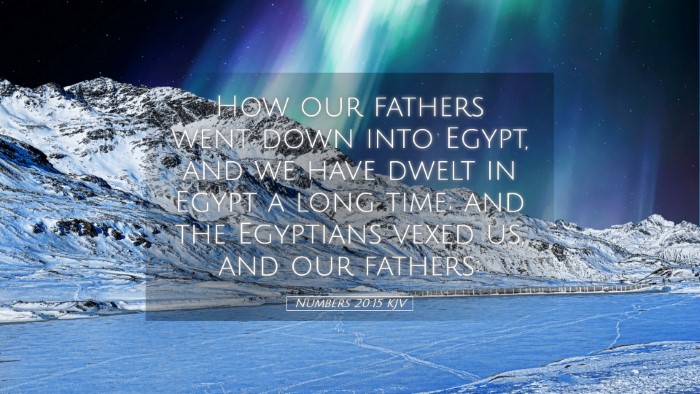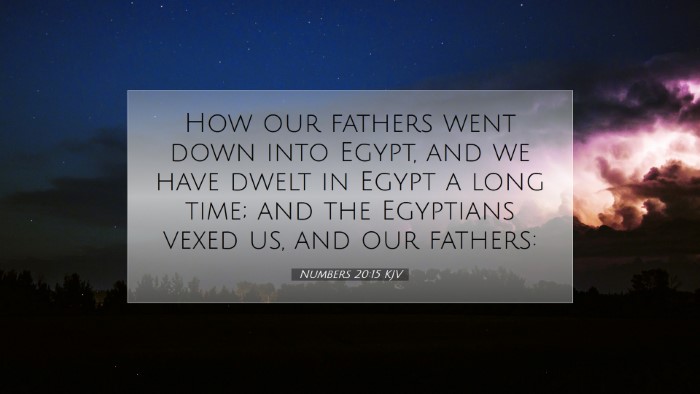Commentary on Numbers 20:15
Verse: "How our fathers went down into Egypt, and we have dwelt in Egypt a long time; and the Egyptians vexed us, and our fathers."
Introduction
This poignant verse from Numbers 20:15 encapsulates the troubled history of the Israelites under Egyptian bondage. The context of this verse is critical to understanding the emotional and spiritual state of the people as they grapple with their identity and their covenant with God. This commentary draws insights from public domain sources, including those by Matthew Henry, Albert Barnes, and Adam Clarke.
Historical Context
Numbers 20 finds the Israelites at a crucial juncture in their wilderness journey, on the verge of entering the Promised Land. However, their history is marred by years of oppression, as they recall their forefathers' plight in Egypt. The recollection of their ancestors' subjugation serves to frame their current sufferings and amplifies their plea for divine help. The mention of Egypt in this context is not merely geographical; it symbolizes oppression, hardship, and the trials that the people endured.
Matthew Henry's Insights
Matthew Henry emphasizes the collective memory of suffering in this verse. He notes that the Israelites do not merely refer to their ancestors, but they connect deeply with that legacy of bondage. Henry explains that remembering the past serves as a powerful exhortation for them to remain faithful, invoking God's promises for deliverance and liberation. He also points out the psychological aspect of their historical narrative—the Egyptians vexed them, highlighting both physical and emotional torment. This vexation contributes to their cry for mercy and their demand for sustenance and support from Moses and Aaron.
Albert Barnes' Observations
Albert Barnes focuses on the emotional dimensions of this verse. He notes that the remembrance of the long duration of their suffering in Egypt may have fostered a sense of despair among the Israelites. Barnes argues that the long time spent in Egypt enhances the weight of their cry. They recollect this duration as a period of intense suffering and subjugation, which underscores their need for God’s deliverance at this darkest hour. He reflects on how this collective memory is not passive but ignites a passionate plea, reminding God of the covenant established with their forefathers, and reinforcing the idea that they are a chosen people enduring painful trials.
Adam Clarke's Commentary
Adam Clarke provides a theological perspective on the significance of Egypt in the biblical narrative. He identifies Egypt as a symbol of sin and the world—representative of spiritual bondage. Clarke elaborates that the Israelites’ acknowledgment of their fathers’ struggles is critical, as it not only encompasses physical oppression but also conveys spiritual alienation from God. He suggests that their cry also serves as an acknowledgment of God’s past deliverance, a call to remembrance for God to act again in their favor. The emotional struggle they endure is met with the firm expectation of divine intervention, reflecting a profound relationship embedded in covenantal theology.
Theological Implications
The theological implications of this verse are multifaceted. It serves both as a reminder of Israel's historical journey and a reflection of God's steadfastness in the face of human suffering. The cry of the Israelites can be seen as an urgent invocation for salvation, linking their dire circumstances to God’s covenant promises. The dependence on God’s mercy in light of historical oppression points towards the overarching theme of redemption that permeates the Old Testament.
Lessons for Modern Believers
The verse, and the reflections therein, present several vital lessons for modern day believers:
- The Importance of Memory: Remembering our spiritual heritage and the hardships endured can cultivate gratitude and strengthen our faith as we seek God’s guidance in our struggles.
- Recognition of Suffering: Acknowledging our suffering and the suffering of others invites compassion and prompts us to seek justice, much like the Israelites’ call to Moses.
- Faith in Deliverance: In moments of despair, we are reminded of God’s faithfulness in delivering His people, encouraging believers to maintain hope amid trials.
Conclusion
Numbers 20:15 serves as a poignant reminder of the rich historical fabric that shapes the identity of the Israelites and the continual relevance of their narrative for contemporary believers. Through the insights provided by esteemed commentators, we glean a deeper understanding of human suffering, divine covenant, and the unwavering faithfulness of God to respond to the ignoble cries of His people. As we reflect on this verse and its implications, we are inspired to acknowledge our own struggles while confidently seeking divine deliverance.


